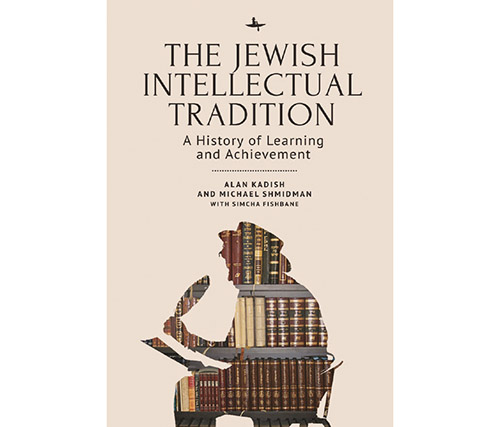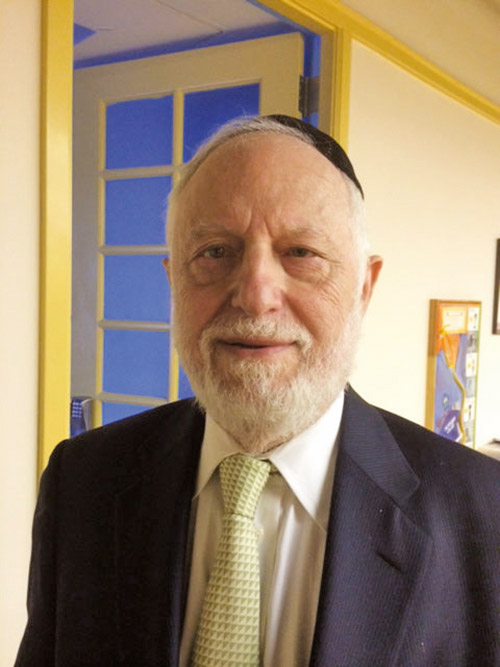
Reviewing: “The Jewish Intellectual Tradition: A History of Learning and Achievement” by Alan Kadish, Michael A. Shmidman and Simcha Fishbane. Academic Studies Press, 2021. 200 pages. ISBN-10: 1644695626.
The Jewish intellectual tradition is a rich and complex tapestry woven from centuries of study, contemplation, and creative expression. The literary output produced by that tradition broadly spans many different genres—including the study of Talmud (Halacha and Aggadah), Kabbalah, morality/ethics, philosophy, language and science (including physics, astronomy and medicine)—not to mention creative writing in prose and poetry. In this book, the authors provide a comprehensive overview of Jewish history as a story of learning and scholarly achievement, exploring the ways in which Jewish thinkers, scholars and artists have shaped the course of Western civilization.
In the first part of the book, the authors trace the place of learning and intellectual achievement from the high middle ages to contemporary times. In doing so, they highlight various key figures (some more well-known than others), like Rabbi Shmuel HaNaggid (993-1056), Nachmanides (1194-1270), Rabbi Yehuda Aryeh de Modena (1571-1648), Rabbi Samson Raphael Hirsch (1808-1880) and Dr. Harry A. Wolfson (1887-1974). In doing so, the authors use a refreshing literary device of imagining to document the personal libraries of these famous historical figures, and contemplating what works might have been there and how they may have affected the figures in question. The authors would also hone in on one particular event in the biographies of these figures, by painting a complete picture of that moment and the context in which it transpired.

In this book, some important genres of Jewish intellectual tradition are given the short shrift, even though they are fundamental to some parts of the greater community. There are even some genres in which there was ample output within the Jewish intellectual tradition, yet the authors chose to omit them entirely, like the folk magic/segulah literature (as a separate field from Kabbalah), polemics (like the many anti-Christian works produced) and homilies (especially those that focus on the weekly parsha or holidays).
One recurring theme in this work is the balancing act in which Jewish intellectuals throughout the ages had to engage. On the hand, reverence and awe of tradition and precedent are long-established values in Jewish thought. Yet on the other hand, intellectual thinkers are always creative and innovative in ways that do not necessarily jibe with the past. Especially in the realm of religion, new ideas have to come in communion with old ideas already in place. The authors show how the various scholars—discussed in this work—grappled with this issue in different ways.
A core part of the authors’ argument is that the same guiding principles that have contributed to various religious Jewish intellectual output also influence secular Jewish intellectual output. This point remains unproven, but is asserted multiple times by the authors. It, essentially, means that thoroughly irreligious Jews who helped shape Western civilization—like Albert Einstein (1879-1955) and Sigmund Freud (1856-1939)—were influenced by Jewish concepts of education and learning, even though they, themselves, were not practicing Jews and not continuing in the tradition of their forebearers, per se.
One of the most impressive aspects of the book is the breadth of the authors’ knowledge, which, of course, matches the wide scope of the topic they are writing about. They draw from a vast range of sources—from classical texts to contemporary academic research—to provide a comprehensive overview of the Jewish intellectual tradition. At the same time, they write with precision, clarity and passion; thus, making the material accessible to readers of all levels of expertise.

Overall, this book is an outstanding contribution to the field of Jewish studies, and a must-read for anyone interested in the Jewish intellectual tradition at large. Its insightful and engaging exploration of the ways in which Jewish thought has shaped Western civilization is sure to leave a lasting impression on readers for years to come.
Although he comes from a totally different world than the chasidic teachings that Hamberger cites, it is worth noting that Rabbi Shmuel David Luzzatto (1800-1865), also known as Shadal, in his commentary to Exodus suggests parsing the first of the 10 commandments differently than its common rendering. He reads it as: “I, Hashem, am your God who took you out of the Land of Egypt (Exodus 20:2),” with innovation of the revelatory aspect of this commandment being the fact that Hashem—the name of God the Jews had already known from the forefathers—is the very self same God, who took them out of Egypt. The standard way of rendering this verse is “I am Hashem, your God, who took you out of the land of Egypt,” with the emphasis on the fact that He, who is revealing Himself at Sinai, is none other than Hashem who had taken the Jews out of Egypt.
Rabbi Reuven Chaim Klein is the editor-in-chief of The Rachack Review, an online forum for book reviews on Jewish Books. He is also the author of the highly-popular work Lashon HaKodesh: History, Holiness, & Hebrew (Mosaica Press), and the Jewish Press’s “Fascinating Explorations in Lashon Hakodesh” column. He can be reached via email to [email protected]














